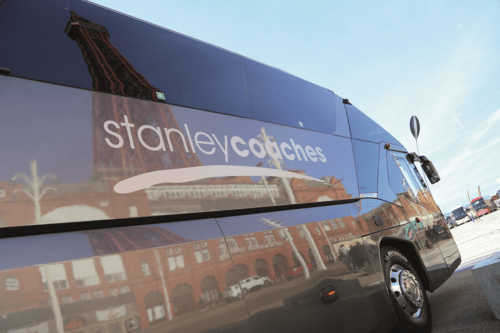
Jonathan Welch speaks to Stanley Travel’s Andrew and Gavin Scott about the company’s past, present and future
Having marked its 60th birthday in 2021, North East operator Stanley Travel continues to provide a wide range of transport services across the region, and is able to offer everything from a taxi for a single person up to double-deck buses for school transport and luxury team coaches. Currently headed by Directors Ian and Andrew Scott, the company is very much a family affair, with Andrew’s wife Susan in charge of accounts and son Gavin as Transport Manager, though Ian plans to retire from the business at the end of the year.
Gavin is also the person looking after the company’s latest venture in the form of its partnership with FlixBus. I spoke to both Andrew and son Gavin, who chose to join the family business around 13 years ago whilst deciding what to do next after a spell as a professional footballer, to find out more about what makes the company tick, why the diversification into express coaching, and what it has in store for the future.
Like many small family firms, Stanley Travel started small, with ‘two taxis in a wooden hut’ and under the Stanley Taxis name as the business was known when it was founded by Robert and Ann Scott in 1961. When he bought those first two taxis, Robert could probably never have imagined the size of fleet which the company would operate some six decades later or the sheer size of some of its vehicles. He would have been proud, though, to hear that the firm is a member of the Guild of British Coach Operators – which brings with it guarantees of service and standards as well as 24-hour back up should something ever go wrong – as well as holder of the Confederation of Passenger Transport’s CoachMarque accreditation.
[…]By subscribing you will benefit from:
- Operator & Supplier Profiles
- Face-to-Face Interviews
- Lastest News
- Test Drives and Reviews
- Legal Updates
- Route Focus
- Industry Insider Opinions
- Passenger Perspective
- Vehicle Launches
- and much more!


